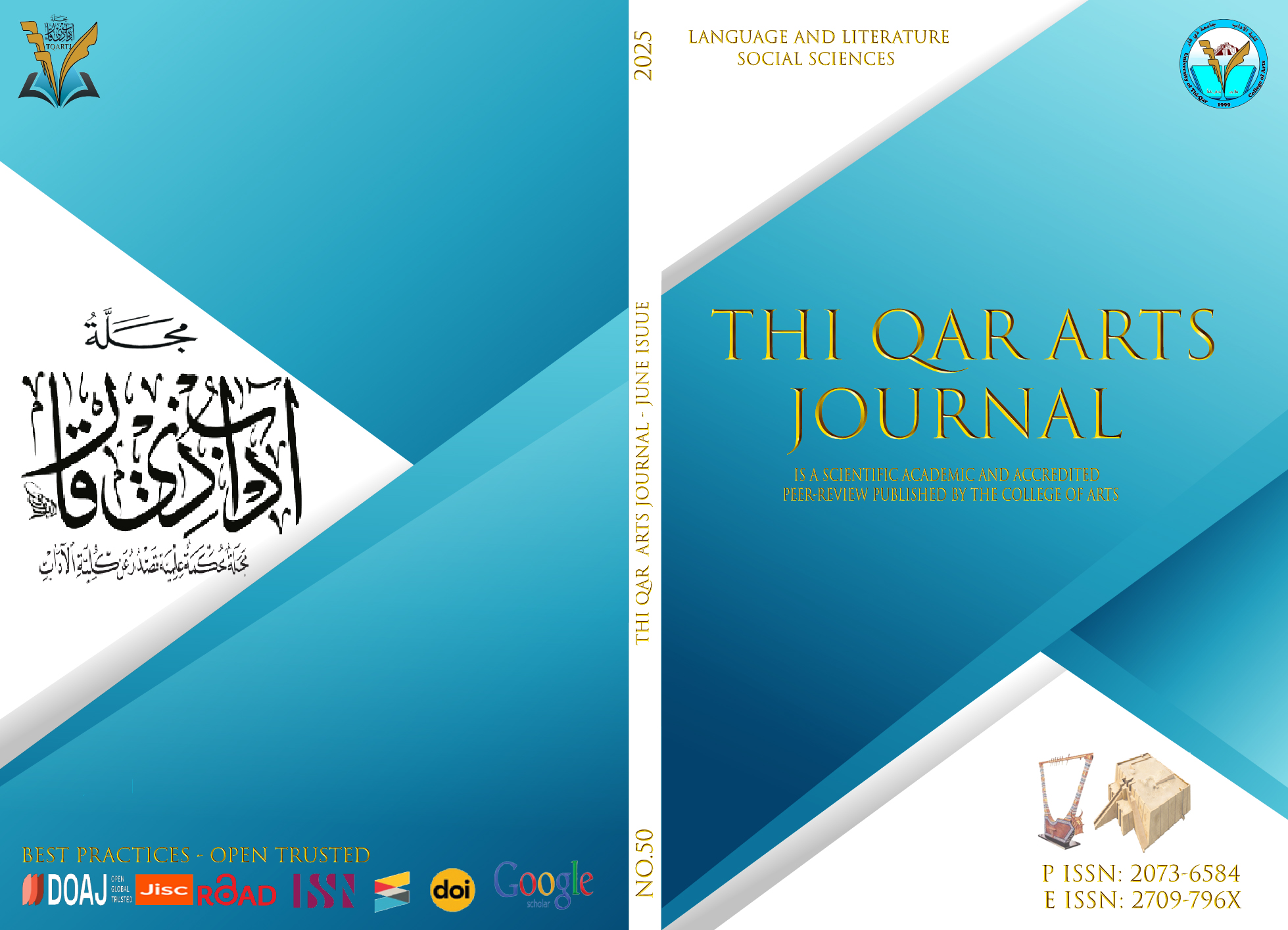Reclaiming the Margins: A Postcolonial Reading of An Island by Karen Jennings
DOI:
https://doi.org/10.32792/tqartj.v3i50.830Keywords:
postcolonialism, Homi Bhabha, hybridity, identity, Third Space, An Island, Karen JenningsAbstract
Abstract
The present research investigates a postcolonial reading of Karen Jennings' An Island, drawing on Homi K. Bhabha's theoretical concepts of hybridity, identity, and the Third Space to examine how the novel reflects the psychological and political consequences of colonialism, displacement, and failed nationhood. Set on a secluded island inhabited by Samuel, an aged lighthouse keeper, the story explores the junction of solitude, memory, and historical trauma. Samuel, a former political prisoner who survived both colonial and postcolonial administrations, exemplifies a fractured identity produced by violence, treachery, and solitude. When a nameless refugee shows up, the story takes a radical turn because Samuel's manufactured sense of identity and ownership is upended by his silent presence. In addition to being a physical location, the island also functions as a liminal Third Space—a location of cultural negotiation, memory, and hybridization—where this meeting takes place. Jennings criticizes the inability of the postcolonial state to address the inherited systems of marginalization and exclusion using layers of symbolism and simple writing.
According to this research , Jennings employs the island's landscape—its deteriorating colonial lighthouse, hybrid vegetation, and changing shoreline—as metaphors for the continual balancing act between the past and present as well as the instability of national identity. Bhabha's concept of hybridity, in which fixed identities disintegrate in favor of multifaceted, conflicted subjectivities, is reflected in Samuel's mental decline and his blending with the refugee. Additionally, by giving nonverbal communication, silence, and fragmented recollection precedence over formal discourse, the novel questions prevailing historical narratives. An Island emphasizes the moral and affective aspects of postcolonial life in this way. In the end, the book highlights the underlying conflicts between self and other, remembering and forgetting, exile and belonging, and challenges readers to face the lingering effects of colonial dominance in modern societies.
Downloads
References
Bhabha, H. K. (1994). The location of culture. Routledge.
Bhabha, H. K. (1985). Signs taken for wonders: Questions of ambivalence and authority under a tree outside Delhi. Critical Inquiry, 12(1), 144–165. Retrieved in 2015 from JSTOR.
Hiddleston, J. (2009). Understanding postcolonialism. Routledge.
Jennings, K. (2012). Finding Soutbek. Holland Park Press.
Jennings, K. (2021). An Island. Holland House Books.
Loomba, A. (2015). Colonialism/Postcolonialism (3rd ed.). Routledge.
Said, E. W. (1978). Orientalism. Pantheon Books.
Sawant, S. B. (2012). Postcolonial theory: Meaning and significance. S.R.M. College
Tyson, L. (2006). Critical theory today: A user-friendly guide (2nd ed.). Routledge.
Young, R. J. C. (2001). Postcolonialism: An historical introduction. Blackwell.
Downloads
Published
Issue
Section
License
Copyright (c) 2025 عباس عبود مرواح، عباس سالم حمد

This work is licensed under a Creative Commons Attribution 4.0 International License.
The journal applies the license of CC BY (a Creative Commons Attribution International license). This license allows authors to keep ownership of the copyright of their papers. But this license permits any user to download, print out, extract, reuse, archive, and distribute the article, so long as appropriate credit is given to the authors and the source of the work. The license ensures that the article will be available as widely as possible and that the article can be included in any scientific archive.



















